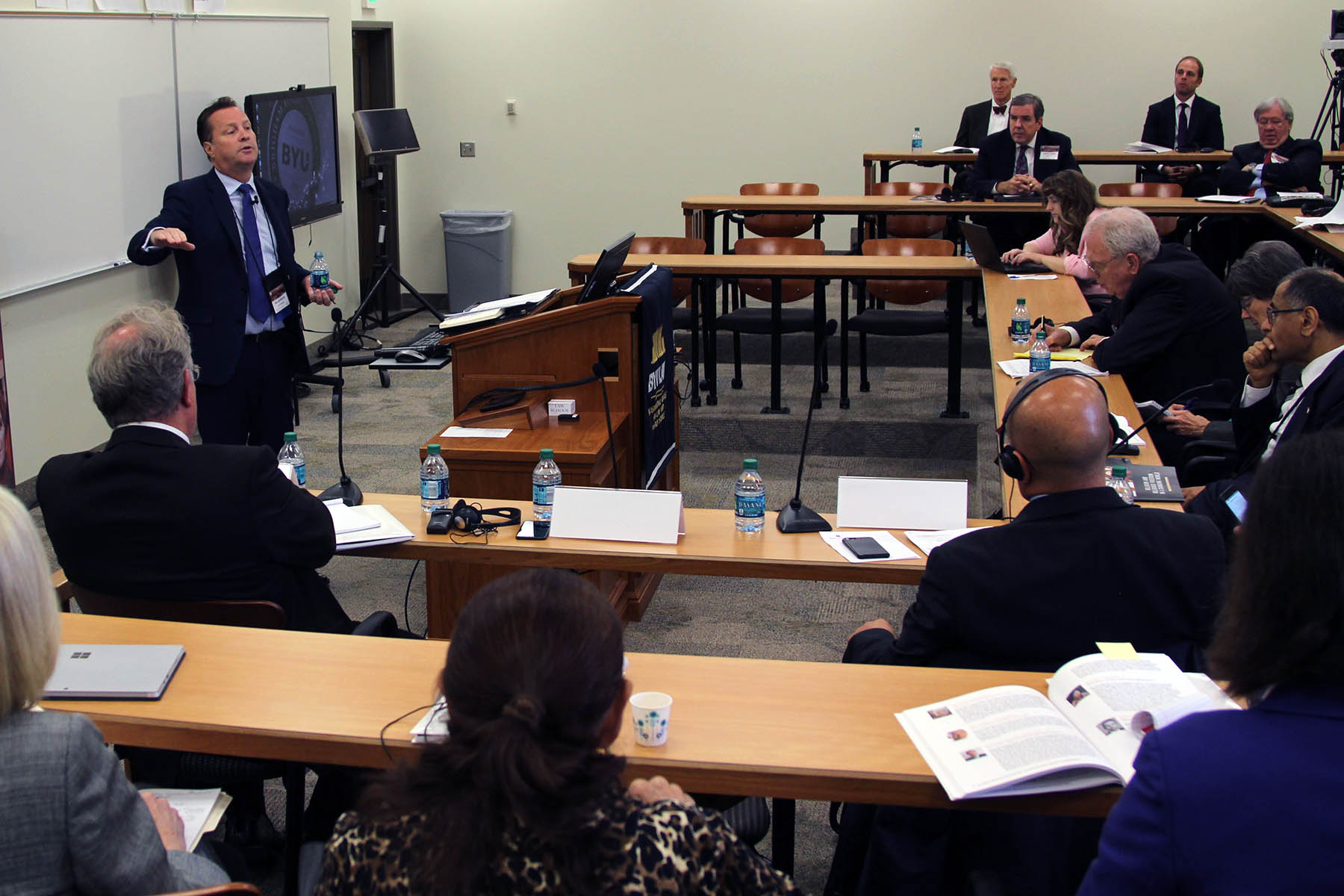Symposium 2017: International Promotion of Religious Freedom

by Melissa Hartman, BYU Law Student and Symposium Volunteer
The International Promotion of Religious Freedom breakout session was held on Monday October 2, 2017 and moderated by David M. Kirkham, Academic Director of the BYU London Centre and Senior Fellow of the International Center for Law and Religion Studies. It included panelists Phil Sherwood and Luigi Lacquanti.
Phil Sherwood of the United Kingdom is the Vice President of the AMAR International Charitable Foundation. His message focused primarily on the gap between ambitious rhetoric on religious freedom and the practical actions required to ensure it on a daily basis. Sherwood drew on his experience working in Iraq to illustrate this disconnect. While the Iraqi constitution guarantees the freedom of creed and religious practice, this guarantee has been difficult to implement in the absence of the rule of law. As Iraq lacks legislation regulating hate speech and hate crimes, individuals cannot be prosecuted for breaching religious freedoms. Sherwood highlighted that Iraq is home to approximately 3.6 million internally displaced persons (refugees within their own country) and explained how his organization has instituted initiatives to promote faith and spirituality to help these people address the post-traumatic stress disorder from being displaced. Drawing an analogy to the experience of the forced migration of members of The Church of Jesus Christ of Latter-day Saints in America, Sherwood explained that religion is part of daily life in the Middle East, and argued that it can help migrants re-integrate into society after persecution. The Latter-day Saints’ journey from persecution to integration provides an example of how the testimony of existence, truth, belief, and conviction can help transform the resilience, well-being, and productivity of faith-based communities when faced with adversity. He called on the international community to recognize the value these communities themselves place upon faith, and the role it can play in restoring lost confidence and mobilizing members for the common good. He concluded that the U.N. and international communities should, therefore, pursue faith-based mental health interventions.
Luigi Lacquanti, a member of the Italian Parliament, focused his remarks on the situation of current legislation affecting religion in Italy. He explained how legislation dating back to 1929 requires sects other than the Catholic church to sign public law contracts in order to obtain legal recognition in Italy. He asserted such agreements are an injustice, particularly because small religious communities may not be able to obtain recognition. Religious rights are also currently threatened in Italy as a result of the migratory phenomenon, as a growing number of Italians see migrants as threats and want to close the border. Certain regions have enacted urban development laws with a discriminatory intent to prevent the building of new places of worship. Lacquanti described how, for example, these laws require new places of worship to be built in suburbs which may require faiths to pay for extending infrastructure such as plumbing and electricity to such areas, to include a parking area two times bigger than the edifice itself, and install a surveillance system at every place of entrance that is constantly connected with the police. He argues that these laws disparately impact refugees with limited resources. Lacquanti concluded by explaining that challenging such laws in the Italian Supreme Court has resulted in their repeal in some regions, but that they still exist in others.